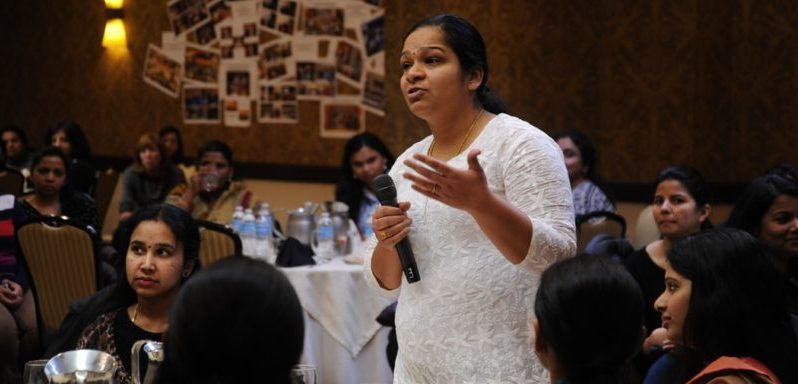Find a nearby piece of scrap paper and take 10 seconds to draw any circle-based object that comes to mind, like an orange or a tennis ball.
How many did you come up with? If you were trying to gather a representative sample of circular objects, would your efforts suffice?
Now, imagine that everyone in your region, county or state was asked to do the same. Your range of drawings would increase dramatically as citizens brought their backgrounds and experiences with circles to the assessment. Wouldn’t you feel a little more confident in your ability to convey a wide range of round items in just 10 seconds?
This is the exercise that United States Agency for International Development (USAID) Chief Innovation Officer Alexis Bonnell led the audience through during a recent panel discussion at the U.S. Government Open Innovation Summit. The task is meant to show the power of public engagement and demonstrate how access to as many ideas as possible can help with even seemingly simple tasks.
Coinciding with the release of the sixth report on the state of federal prize competitions, the General Services Administration (GSA)-hosted summit focused on scientific contributions from constituents, but the broader lesson was clear: Government should be engaging its constituents to encourage innovation. Valuable, undiscovered ideas are likely hidden in the crowd of constituents and taking the time to find it is good for both the public spirit and making government work better.
Director of the White House Office of Science and Technology Policy (OSTP) Kelvin Droegemeier believes that crowdsourcing innovation is a sign that the government is being an effective leader.
“It’s not about the government doing it, it’s about the government empowering others,” he said during his keynote speech at the summit.
Empowerment begins by engaging the public and, according to OSTP’s federal prize competition and citizen science report, the most common goal of federal prize competitions is to engage new people and communities. Feeling more connected to one’s government initiatives helps individuals form a better understanding of them and, eventually, opens the platform to generate new ideas.
“It really helps people understand the value of science when they participate in it. They have a stake in it,” Droegemeier said. “In my own experience with citizen science and crowdfunding, that really warms their heart and makes them feel a part of the process.”
Simplifying how citizens can voice their ideas to decision-makers can also help. Whether it’s through user-friendly online portals or town halls, making it easier for the public to give their thoughts helps engage people with good ideas who may not have felt like their voice held merit.
The benefits of public engagement are also tangible. Crowdsourced data, prize competitions and other tactics save time, use resources efficiently, and often form the best results. It opens the door to hundreds of thousands of independent researchers and contributors to craft new ideas and forms of analysis. Creating access to a free range of ideas is a smart way to do government business because it helps the best ones float to the top.
For agencies such as USAID, crowdsourcing ideas can even save lives. Following the circle exercise, Bonnell shared the impact of citizen ideas when responding to the Ebola epidemic. In just two weeks, the agency received over 1,500 tactics to fight the disease that eventually resulted in faster treatment.
Citizens in your area likely hold new solutions to problems in your community, including issues you’ve yet to consider. Listening to their ideas can not only help them feel like their voice matters, but also provides innovative information to transform the status quo.
Photo Credit: Unsplash





Really interesting piece, and what seemed like a particularly captivating presentation for the release of a report. The Ebola example is such a strong example of crowdsourcing the public good!